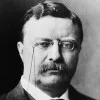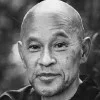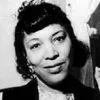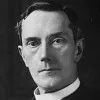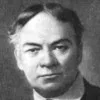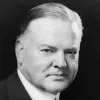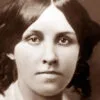We tell our children things which we know are not so, but which we wish were so.
Mignon McLaughlin (1913-1983) American journalist and author
The Neurotic’s Notebook, ch. 2 (1963)
(Source)
Quotations about:
ideals
Note not all quotations have been tagged, so Search may find additional quotes on this topic.
When a society abandons its ideals just because most people can’t live up to them, behavior gets very ugly indeed.
The worth of the ideal must be largely determined by the success with which it can in practice be realized. We should abhor the so-called “practical” men whose practicality assumes the shape of that peculiar baseness which finds its expression in disbelief in morality and decency, in disregard of high standards of living and conduct. Such a creature is the worst enemy of the body politic. But only less desirable as a citizen is his nominal opponent and real ally, the man of fantastic vision who makes the impossible better forever the enemy of the possible good.
Theodore Roosevelt (1858-1919) American politician, statesman, conservationist, writer, US President (1901-1909)
Speech (1910-04-23), “Citizenship in a Republic [The Man in the Arena],” Sorbonne, Paris
(Source)
This is the richest and most powerful country which ever occupied the globe. The might of past empires is little compared to ours. But I do not want to be the President who built empires, or sought grandeur, or extended dominion.
I want to be the President who educated young children to the wonders of their world.
I want to be the President who helped to feed the hungry and to prepare them to be taxpayers instead of tax-eaters.
I want to be the President who helped the poor to find their own way and who protected the right of every citizen to vote in every election.
I want to be the President who helped to end hatred among his fellow men and who promoted love among the people of all races and all regions and all parties.
I want to be the President who helped to end war among the brothers of this earth.Lyndon B. Johnson (1908-1973) American politician, educator, US President (1963-69)
Speech (1965-03-15), “The American Promise,” Joint Session of Congress [43:30]
(Source)
I was raised in an old-fashioned American tradition and there were certain homely things that were taught to me: To try to tell the truth, not to bear false witness, not to harm my neighbor, to be loyal to my country, and so on. In general, I respected these ideals of Christian honor and did as well with them as I knew how. It is my belief that you will agree with these simple rules of human decency and will not expect me to violate the good American tradition from which they spring.
Lillian Hellman (1905-1984) American playwright, screenwriter
Letter to Rep. John S. Wood, House Committee on Un-American Activities (19 May 1952)
(Source)
On declining to "name names" before HUAC (see here). National Archives copy. Reprinted in The Nation (31 May 1952).
As a result of the letter and her invoking the Fifth Amendment at the HUAC hearings, Hellman was put on the Hollywood Blacklist for the rest of the decade.
Exercise caution in your business affairs;
for the world is full of trickery.
But let this not blind you to what virtue there is;
many persons strive for high ideals;
and everywhere life is full of heroism.
“All right,” said Susan. “I’m not stupid. You’re saying humans need … fantasies to make life bearable.”
REALLY? AS IF IT WAS SOME KIND OF PINK PILL? NO. HUMANS NEED FANTASY TO BE HUMAN. TO BE THE PLACE WHERE THE FALLING ANGEL MEETS THE RISING APE.
“Tooth fairies? Hogfathers? Little –”
YES. AS PRACTICE. YOU HAVE TO START OUT LEARNING TO BELIEVE THE LITTLE LIES.
“So we can believe the big ones?”
YES. JUSTICE. MERCY. DUTY. THAT SORT OF THING.
“They’re not the same at all!”
YOU THINK SO? THEN TAKE THE UNIVERSE AND GRIND IT DOWN TO THE FINEST POWDER AND SIEVE IT THROUGH THE FINEST SIEVE AND THEN SHOW ME ONE ATOM OF JUSTICE, ONE MOLECULE OF MERCY. AND YET — Death waved a hand. AND YET YOU ACT AS IF THERE IS SOME IDEAL ORDER IN THE WORLD, AS IF THERE IS SOME … SOME RIGHTNESS IN THE UNIVERSE BY WHICH IT MAY BE JUDGED.
“Yes, but people have got to believe that, or what’s the point –”
MY POINT EXACTLY.
We are too prone to judge ourselves by our ideals and other people by their acts. All of us are entitled to be judged by both. We must recognize the dignity of our neighbors and before we act must place ourselves in the place of our neighbor and judge our acts through his eyes.
Dwight Morrow (1873-1931) American businessman, diplomat, politician
Quoted in “Close Mexican Ties Urged by Morrow,” New York Times (17 May 1930)
(Source)
The first sentence of this comment by Morrow was popularized in a biography of him, Harold Nicolson, Dwight Morrow (1935). Nicolson is, in turn, often erroneously credited with the quote.
Nicolson noted it was frequently used by Morrow ("'Remember,' he would often repeat, 'that we are all inclined to judge ourselves by our ideals; others by their acts.'"). He also recounts a variant, "All nations are prone to judge themselves by the loftiness of their own purposes, and to judge others nations by their failure to attain their high purposes."
More discussion of this quotation (and its predecessors) can be found here. Compare also to a related sentiment by Longfellow.
ANGEL: Nothing in the world is the way it ought to be. It’s harsh, and cruel. But that’s why there’s us, champions. Doesn’t matter where we come from, what we’ve done or suffered, or even if we make a difference. We live as though the world is as it should be, to show it what it can be.
So it is not a matter of whether it is possible to attain Buddhahood, or if it is possible to make a tile a jewel. But just to work, just to live in this world with this understanding is the most important point, and that is our practice. That is true zazen.
Shunryū Suzuki (1905-1971) Japanese Zen Buddhist master
Lecture in Los Altos, California (1 Sep 1967)
(Source)
PHILINTE: And if goodness were found on every side,
If all men’s hearts were docile, frank, and just,
Most of our virtues would but gather rust,
Since they can serve to help us calmly bear
The injustices that face us everywhere.[Et si de probité tout était revêtu,
Si tous les cœurs étaient francs, justes, et dociles,
La plupart des vertus nous seraient inutiles,
Puisqu’on en met l’usage à pouvoir sans ennui
Supporter, dans nos droits, l’injustice d’autrui.]Molière (1622-1673) French playwright, actor [stage name for Jean-Baptiste Poquelin]
Le Misanthrope, Act 5, sc. 1, ll. 1564ff (1666) [tr. Frame (1967)]
(Source)
(Source (French)). Alternate translations:If probity reigned everywhere, if all hearts were candid, just, and tractable, most of our virtues would be useless to us, inasmuch as their functions are to bear, without annoyance, the injustices of others in our good cause.
[tr. Van Laun (1878)]If everything were clothed with integrity, and all hearts were frank, just, and docile, most of our virtue would be useless, since we can only use them in bearing the injustice of others in respect to our rights.
[tr. Mathew (1890)]If everyone were clothed with integrity,
If every heart were just, frank, kindly,
The other virtues would be well-nigh useless,
Since their chief purpose is to make us bear with patience
The injustice of our fellows.
[tr. Wormeley (1894)]If probity reigned everywhere, if all hearts were open, just and tractable, most of our virtues would be useless to us, for their office is to bear, without annoyance, the injustice of others when we have justice on our side.
[tr. Waller (1903)]If everything were clothed in probity,
If all men's hearts were open, just, gentle,
Most of our virtues would be wholly useless,
Since we employ them now, in cheerfully
Enduring wrong, with right on our side.
[tr. Page (1913)]If honesty shone forth from all men's eyes,
If every heart were frank and kind and just,
What could our virtues do but gather dust
(Since their employment is to help us bear
The villainies of men without despair)?
[tr. Wilbur (1954)]If truth and rectitude were universal,
If every heart were frank and reasonable,
Most of the virtues would be meaningless,
Because they enable us to bear serenely
The injustice of others, when our cause is just.
[tr. Bishop (1957)]
You are right in assuming that I am indifferent to the pattern of things. I am. I have never liked stale phrases and bodyless courage. I have the nerve to walk my own way, however hard, in my search for reality, rather than climb upon the rattling wagon of wishful illusions.
Zora Neale Hurston (1891-1960) American writer, folklorist, anthropologist
Letter to Countee Cullen (5 Mar 1943)
(Source)
It had been boldly predicted by some of the early Christians that the conversion of the world would lead to the establishment of perpetual peace. In looking back, with our present experience, we are driven to the melancholy conclusion that, instead of diminishing the number of wars, ecclesiastical influence as actually and very seriously increased it.
It is loyalty to great ends, even though forced to combine the small and opposing motives of selfish men to accomplish them; it is the anchored cling to solid principles of duty and action, which knows how to swing with the tide, but is never carried away by it — that we demand in public men, and not sameness of policy, or a conscientious persistency in what is impracticable.
Judaism holds that man can most genuinely worship God by imitating those qualities that are godly: As God is merciful, so must we be compassionate; as God is just, so must we deal justly with our neighbor; as God is slow to anger, so must we be tolerant.
I look forward to an America which commands respect throughout the world not only for its strength but for its civilization as well. And I look forward to a world which will be safe not only for democracy and diversity but also for personal distinction.
America has never been united by blood or birth or soil. We are bound by ideals that move us beyond our backgrounds, lift us above our interests, and teach us what it means to be citizens. Every child must be taught these principles. Every citizen must uphold them; and every immigrant, by embracing these ideals, makes our country more, not less, American.
What are the American ideals? They are the development of the individual for his own and the common good; the development of the individual through liberty, and the attainment of the common good through democracy and social justice.
Louis Brandeis (1856-1941) American lawyer, activist, Supreme Court Justice (1916-39)
“True Americanism,” speech, Faneuil Hall, Boston (1915-07-05)
(Source)
How dull, how impossible life would be without dreams — waking dreams, I mean — the dreams that we call “castles in the air,” built by the kindly hands of Hope! Were it not for the mirage of the oasis, drawing his footsteps ever onward, the weary traveler would lie down in the desert sand and die. It is the mirage of distant success, of happiness that, like the bunch of carrots fastened an inch beyond the donkey’s nose, seems always just within our reach, if only we will gallop fast enough, that makes us run so eagerly along the road of Life.
Jerome K. Jerome (1859-1927) English writer, humorist [Jerome Klapka Jerome]
“Dreams” (1886)
(Source)
Ours is a practical people, to whom ideals furnish the theory of political action, upon which they want not only firm assurance, but also effective practice. They want programmes, but they want action to flow from them. They want constructive common sense. They want the development of the common will, not the views of a single individual. They are beginning to realize that words without action are the assassins of idealism.
Far away in the sunshine are my highest aspirations. I may not reach them, but I can look up and see the beauty, believe in them and try to follow where they lead.
Louisa May Alcott (1832-1888) American writer
Work: A Story of Experience ch. 12 [Christie] (1875)
(Source)



